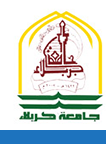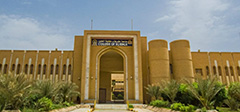Abstract
Aristolochia longa L. is a plant native to Algeria and Morocco that has been used by the locals to combat different arrays of infections and diseases found among them. This particular plant is well-known for its therapeutic qualities that could be traced back to the presence of many effective phytochemicals that have been extrapolated from the different parts of the plant, like the leaves and roots: flavonoids, saponins, tannins, 4-hydroxybenzoic acid, β-carotenes, limonenes, and palmitic acids. This plant has been identified in different research articles to be able to manage diseases effectively because it possesses some pharmacological attributes such as; antitumor/anti-inflammatory, anti-cancer, anti-diabetic, anti-microbial, anti-fungal, as well as antioxidant properties. This review covers the ethnobotanical, phytochemical, and pharmacological activities of A. longa as well as its toxicological aspects. A thorough review of scientific literature published in a number of databases, including Scopus, Web of Science, and PubMed, was used to acquire relevant data for A. longa. The plant includes phytochemicals that have been proven to alleviate a variety of diseases. As a result, it's safe to claim that this plant is a good source of traditional medicine, which could be useful in medication development, bearing in mind that it could also be toxic depending on its consumption rate locally.
Recommended Citation
Ojo, Oluwafemi Adeleke; Iyobhebhe, Matthew; Atunwa, Bukola; and Ojo, Adebola Busola
(2022)
"A Review on the Ethnobotanical, Phytochemistry, and Pharmacological Activities of Aristolochia longa L.,"
Karbala International Journal of Modern Science: Vol. 8
:
Iss.
3
, Article 7.
Available at:
https://doi.org/10.33640/2405-609X.3245
Creative Commons License

This work is licensed under a Creative Commons Attribution-Noncommercial-No Derivative Works 4.0 License.
Included in
Biology Commons, Chemistry Commons, Computer Sciences Commons, Physics Commons




